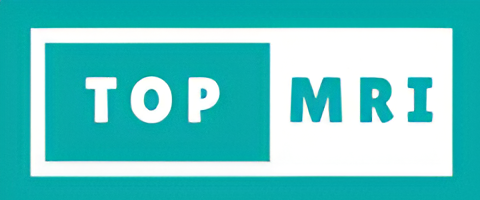
- Home
- Services
- Locations
- MRI Scan
- Greater London Area
- London – Marylebone, W1G 7HE – 3.0 T MRI Scan – £300
- London – Harley Street, W1U 2HX – Open MRI Scan – £500
- Middlesex – Enfield, EN2 8JL – 1.5 T MRI Scan – £300
- West Middlesex – Isleworth, TW7 6AF – 1.5 T MRI Scan – £300
- Surrey – Epsom, KT18 7LX – 1.5 T MRI Scan – £300
- Surrey – Ashford, TW13 3AA – 1.5 T MRI Scan – £300
- Surrey – Guildford, GU2 7XU – 3.0 T MRI Scan – £300
- Kent – Sidcup, Bexley, DA14 6LT – 1.5 T MRI Scan – £300
- North West England
- Manchester – M80 4AN – Open MRI Scan – £500
- Greater Manchester – Manchester, SK8 7NB – 1.5 T MRI Scan – £279
- Greater Manchester – Whythenshaw, M23 9LT – 3.0 T MRI Scan – £300
- Greater Manchester – Stockport, SK2 7JE – 1.5 T MRI Scan – £300
- Cumbria – Cockermouth, CA13 9HT – 1.5 T MRI Scan – £279
- Cumbria – Penrith, CA11 0AH – 1.5 T MRI Scan – £279
- Lancashire – Preston, PR4 0AP – 1.5 T MRI Scan – £279
- Lancashire – Fylde, FY8 1PF – 1.5 T MRI – £300
- North East England
- East Midlands
- East of England
- West Midlands
- South West England
- South East England
- Wales
- Yorkshire and the Humber
- Greater London Area
- CT Scan
- Full Body MRI Scan
- Ultrasound
- MRI Scan
- Patients
- Referrers
- Prices
- 0333 344 1811
[email protected]
Thymus Cancer
- Uncategorized
-
Sep 24
- Share post
Thymus Cancer: Symptoms, Causes, Diagnosis, Treatment, and Future Outlook.
Disclaimer:
This blog is for informational purposes only and should not be taken as medical advice. Content is sourced from third parties, and we do not guarantee accuracy or accept any liability for its use. Always consult a qualified healthcare professional for medical guidance.
What is Thymus Cancer?
Thymus cancer arises in the thymus, a small organ in the chest behind the sternum, crucial for T-cell maturation in the immune system. It includes thymomas (slow-growing, 90%) and thymic carcinomas (aggressive, 10%), with subtypes based on WHO classification (A, AB, B1-B3 for thymomas; squamous for carcinomas). Extremely rare, it accounts for <1% of cancers, with ~500 US cases annually in 2025, affecting adults aged 40-60 equally across genders. Often associated with autoimmune disorders like myasthenia gravis (30-50% of thymoma cases), it ranges from encapsulated to metastatic.
Symptoms
Many cases are asymptomatic, found incidentally on imaging. Symptoms include chest pain, persistent cough, shortness of breath (from mediastinal compression), superior vena cava syndrome (facial/arm swelling, cyanosis), fatigue, weight loss, and night sweats. Paraneoplastic syndromes like myasthenia gravis (muscle weakness, drooping eyelids), pure red cell aplasia, or hypogammaglobulinemia occur in 40% of thymomas. Advanced cases cause pleural effusion or symptoms from metastases (lungs, liver). Symptoms may mimic pneumonia or heart disease, delaying diagnosis.
Causes
Causes are unknown, but risk factors include autoimmune diseases (myasthenia gravis, lupus), radiation exposure, and genetic alterations (GTF2I mutations in thymomas, KIT/EGFR in carcinomas). No strong lifestyle links exist, but thymic epithelial cell dysregulation is key. In 2025, research highlights immune microenvironment and PD-L1 expression as drivers, with no clear environmental triggers.
Diagnosis
Diagnosis uses chest CT/MRI to detect mediastinal masses, PET for metabolic activity, and biopsy (core/needle) for histology. Blood tests assess paraneoplastic markers (anti-acetylcholine receptor antibodies). Staging uses Masaoka-Koga (I-IV). In 2025, AI imaging differentiates thymomas from lymphomas, and molecular profiling (NGS) identifies actionable mutations.
Treatment
Stage I-II thymomas use surgical resection (thymectomy via sternotomy or VATS), achieving 90-95% cure. Stage III-IV or thymic carcinomas combine surgery, radiation (IMRT), and chemotherapy (cisplatin, doxorubicin). Targeted therapies (sunitinib for KIT mutations) and immunotherapy (pembrolizumab for PD-L1+) show 20-30% response in advanced cases. In 2025, minimally invasive surgery and proton therapy reduce complications, with autoimmune management critical.
Future Outlook
In 2025, 5-year survival is 90% for stage I thymomas, 70% for stage III, and 30-50% for thymic carcinomas. Advances in targeted therapies extend survival by 12-18 months in metastatic cases. Research on immune modulators and CAR-T could raise survival to 80% for advanced by 2030, with focus on managing paraneoplastic syndromes.
Sources
Cleveland Clinic’s “Thymus Cancer: Symptoms, Causes & Treatment”; Mayo Clinic’s “Thymoma and Thymic Carcinoma – Symptoms and causes”; NCI’s “Thymoma and Thymic Carcinoma Treatment (PDQ®)”; American Cancer Society’s “Thymus Cancer”; PMC’s “Thymus Cancer: Advances in 2025”.